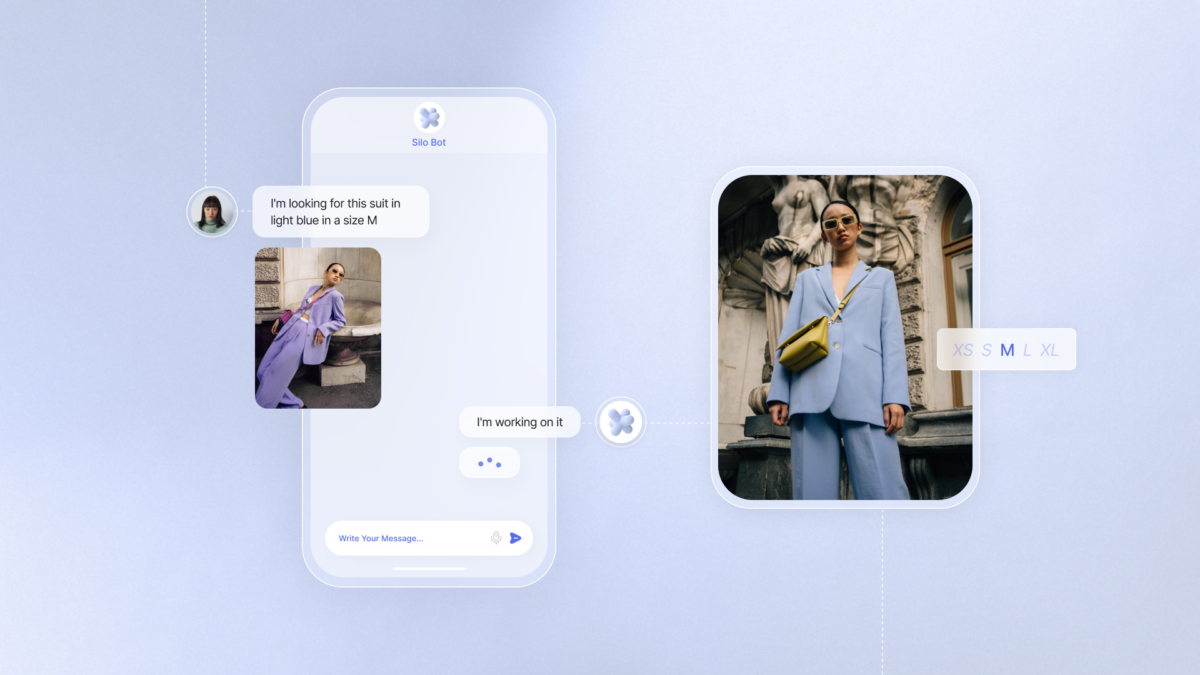Table of Contents

Here’s How Generative AI Is Transforming Retail Personalization
We’ve all seen futuristic movies where a truly personal shopping experience is delivered with the power of artificial intelligence.
Perhaps, like us, your first thought was the iconic scene from the movie Minority Report. “Hello, Mr. Yakamoto. Welcome back to the Gap! How did those assorted tank tops work out for you?”
With Generative AI technology, even in its early stages, this vision is closer to reality than ever before. The adoption of AI in the retail industry will empower retailers to enhance user experiences, streamline operations and ultimately drive business growth.
As generative AI continues to evolve, retailers must embrace the latest AI technology in order to stay competitive in the rapidly changing market landscape. Here are the areas within retail where we foresee that personalized AI will have the highest impact.
1. Personalized product descriptions
In retail, product descriptions play a crucial role in selling products. It’s an area customers actually take the time to read in order to understand more about their potential purchase. In a recent study conducted by Convercart, it was found that 87% of customers feel product content is the most important factor when deciding to purchase an item online as they cannot physically see or feel the item.
However, writing product descriptions can be time-consuming and therefore expensive. This is especially true for large companies with a vast amount of inventory. Using AI, organizations can effectively streamline the process by:
Creating targeted descriptions: AI can tailor product descriptions at scale to various different personas, emphasizing features that are likely to be most relevant to them. With segmented audiences in place, organizations can tailor their descriptions to be more personal according to various factors like age, geographical location, browsing history and returning or new customers.
2. Personalized customer support

The use of chatbots in customer support is nothing new — however, they have always been rather impersonal and tend to stick to a very specific flow. Now, with LLMs, organizations can drastically improve and personalize the way they connect to their customers.
Here are a few examples of how AI can help customer support teams handle complaints or queries — while also communicating to customers that they care about their needs:
Offer 24/7 customer support: AI systems can answer customer queries at any time of the day, providing a consistent level of support without the constraints of human working hours.
Support instant responses: Use AI to reduce wait times and improve customer satisfaction with instant responses to customer questions.
Understand context and provide answers: Advanced AI algorithms can understand the context behind customer queries, enabling more relevant and personalized responses. AI can also be prompted to answer customer questions from a given database of text.
Allow for scalability: AI can handle an unlimited number of queries simultaneously, offering a scalable solution to customer support.
3. Personal shopping assistant

There’s nothing worse than feeling like someone is clocking your every move as you browse through a store. However, there are those times where you need help locating a specific size or color of an item. AI personal shopping assistants can seamlessly guide customers along the buying journey in the following ways:
Provide personalized recommendations: AI personal shopping assistants can analyze customer behavior, preferences and past purchases to make personalized product recommendations — providing a unique shopping experience for customers that encourages more sales.
Use conversational language: AI assistants can understand and engage in human-like conversations with customers using Natural Language Processing (NLP). This allows for a more humanized experience, enabling retail companies to build on high quality customer engagement and perception.
The future of retail is here with personalized AI
Recent advancements of LLMs and Generative AI have given retailers a major leap forward in creating content. This has significantly reduced the cost of content, giving retailers the power to easily create personalized content. In order to tackle the significant challenges that the retail industry faces, retailers need to leverage the power of personalized retail with AI. Your customers and your bottom line will thank you.
Ready to transform your online retail store? Contact us to learn how you can personalize your retail experience with Generative AI today!


